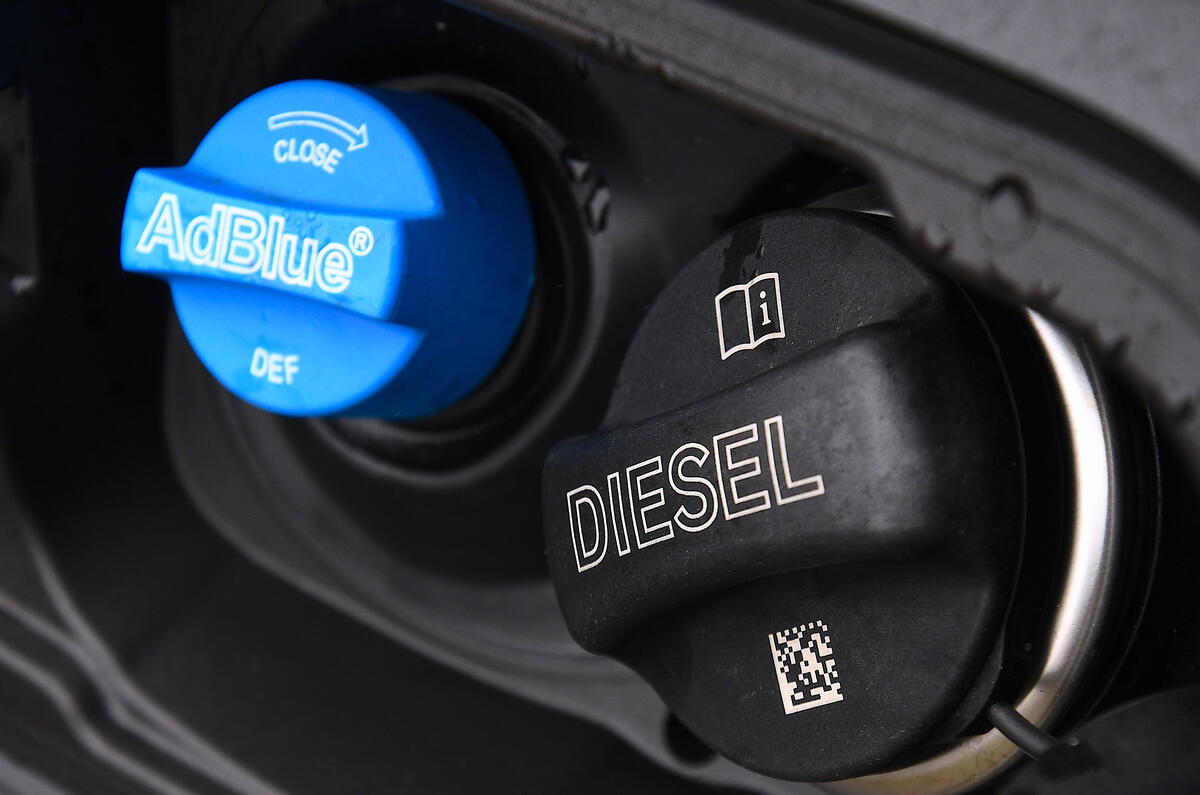Demand from private buyers for diesel cars was more than for EVs in September, leading industry bosses to renew calls for urgent government support amid “serious concerns” that a waning electric car market “is putting environmental ambitions at risk”.
During the month, private diesel sales increased 17.1% compared with September 2023 – a volume uplift of 1367 cars – which was in contrast to the powertrain's 7% year-on-year sales drop.
Private EV demand also rose – driven by “unprecedented” mandate-chasing manufacturer discounting - albeit by only 3.6%, equivalent to just 410 additional registrations.
This rise comes despite a record month for EV sales, which increased 36.8% year on year to 56,387 sales - 76% of which were made by fleets.
“September’s record EV performance is good news, but look under the bonnet and there are serious concerns as the market is not growing quickly enough to meet mandated targets,” said Society of Motor Manufacturers and Traders (SMMT) boss Mike Hawes.
Those mandated targets reference the UK government's new emissions regulations that will heavily fine car makers if they fail to meet a 22% EV sales mix – a figure that will rise each year.
Hawes added: “Despite manufacturers spending billions on both product and market support – support that the industry cannot sustain indefinitely – market weakness is putting environmental ambitions at risk and jeopardising future investment.
“While we appreciate the pressures on the public purse, the chancellor must use the forthcoming Budget to introduce bold measures on consumer support and infrastructure to get the transition back on track, and with it the economic growth and environmental benefits we all crave.”
Ahead of new chancellor Rachel Reeves' Budget later this month, the SMMT and “12 major manufacturers” have called for: temporarily halving VAT on new EV purchases; scrapping the VED ‘expensive car’ tax supplement for EVs; equalising VAT on public charging to match the 5% home-charging rate; and maintaining and extending business incentives.
Overall, the UK new car market bounced back following a lacklustre August, recording the best figure for a September in post-Covid Britain.
In what is always a bumper month for the market, given the arrival of new registration plates (now '74’), 275,239 cars were sold, according to SMMT figures.
This represents a slight rise (1%) on 2023’s 272,610, but is still 20% down on pre-Covid 2019.
So far this year, 1,514,094 cars have been sold, up 4.3% on the same point in 2023.








Join the debate
Add your comment
The UK goverment is already massively supporting hugely expensive EV's (purchase price and depreciation) via tax incentives for BIK drivers and 100% capital allowances for companies . The good news is as a result there are increasingly good deals to be had on second hand EV's. The bad news, that the risk for private purchasers (obsalesence and residuals) means it's unlikely that incentives for this group will make a significant difference to new vehicle private sales. The major issue is how will UK government balance the books with BEV 'fuel' generating around 0.01p per mile driven in tax (5% VAT on home charging at 10p/kWh and 4mi/kWh) versus 10p per mile for petrol ICE vehicles (at 30mpg). The cost of going green is huge but necessary and the Government need to 'fess up' and work out how to sell the cost of green pledges (road charging) to the motorist.
Love the SMMT spin on things, BEV's sales up a massive 25% in September but we want more incentives and Public cash for our members. Let's see how the new Chinese car tariffs bail out the failing European manufacturers.
The overal may well be up when you include fleet purchases, but private sales are down, i.e. Joe Blogs isn't walking into his nearest showroom to buy an EV, he's only runnung an EV if his boss supplies it as a company car.
Why would you not include fleet sales. At the end of the day EV sales have jumped in Sept. and the SMMT are just putting a negative spin on things because they want money for companies like Ford who have failed, in Europe, on the BEV front.
Its not a negative spin its a realistic view on market dynamics. Fleet sales are always inportant and account for volume, however if private buyer demand is not existing in enough volume itself then the market has issues.
Private buyers hoover up the fleet cars when they are returned and if they dont buy them quite simply that results in the poor residuals we are seeing on used EV's. If residuals are weak then leasing/PCP figures are pushed up and that puts off private buyers on new car sales.
In September 2024, diesel sales are down 7.1%, petrol sales are down 9.3% and EV sales are up 24.4%. EV sales are now at 20.5% of the new car market. That's 1 in 5 new cars. That's what the SMMT data shows. This article by Will Rimmel is pure spin aimed at distracting from the fact that EVs are growing overall. Autocar needs to join the 21st Century and stop acting like a sub-brand of Classic & Sportscar.